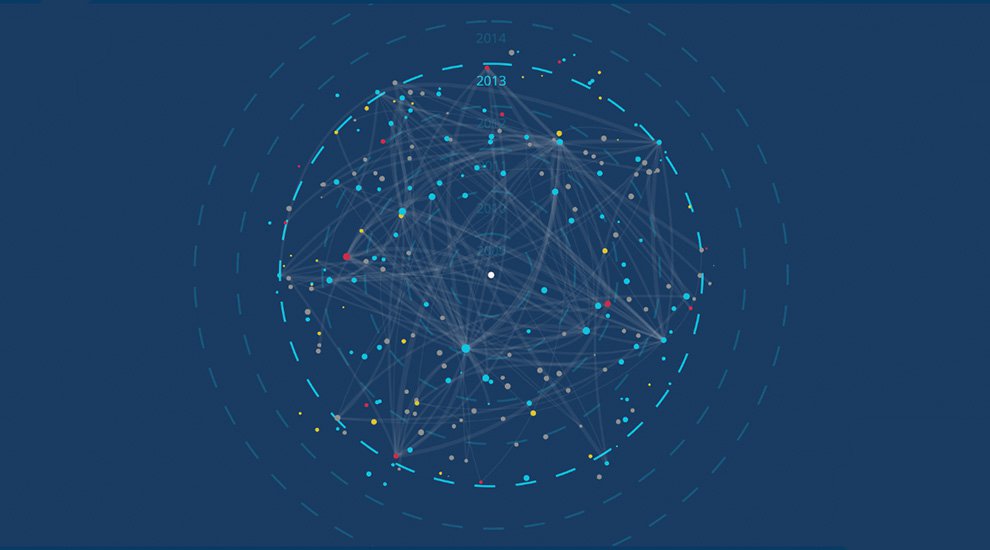LexisNexis and Elliptic Partner to Bring Financial Transparency to the Bitcoin Blockchain
In a new partnership, LexisNexis Risk Solutions, a global big-data technology and analytics firm, has integrated its anti-money laundering data into Elliptic’s Bitcoin transaction monitoring and compliance products. As a result, clients of Elliptic’s blockchain intelligence service can obtain more meaningful insights by automatically screening Bitcoin entities for links to sanctions, enforcement, politically exposed persons, adverse media and state-owned companies, as well as “exposing money launderers, human traffickers, terrorists and drug dealers who use Bitcoin to make dark web purchases.”
“The lack of financial transparency on Bitcoin entities continues to stymie the ubiquitous adoption of Bitcoin and other virtual currencies,” notes a joint press release. “That reality, though, is soon to be short-lived.”
Elliptic, a blockchain security and compliance company established in London in 2013, strives to be “the global standard for blockchain intelligence” by transferring the rigorous security and compliance standards of traditional finance to the world of digital currencies. “We identify illicit activity on the Bitcoin blockchain and provide actionable intelligence to financial institutions and law enforcement agencies.” In July, for example, Elliptic and the Internet Watch Foundation announced a partnership to monitor and report Bitcoin transactions related to child pornography.
LexisNexis Risk Solutions, part of RELX Group, combines cutting-edge technology, data and advanced analytics to provide information that helps customers across industries and government predict, assess and manage risk. It is used by one hundred of the top U.S. banks and the firm also works with eighty percent of U.S. federal agencies, assisting with regulatory compliance and mitigating business risk, such as identity fraud, money laundering, terrorist financing and tax evasion, International Business Times reports.
“This alliance demonstrates how data, technology and analytics can be used in innovative ways to foster financial transparency from China to Germany to the U.S.,” said Thomas C. Brown, senior vice president of U.S. Commercial Markets and Global Market Development at LexisNexis Risk Solutions.
“More banks, Fintech startups, payments companies and eCommerce businesses can further consider the usefulness of the permissionless blockchain because as of today they are able to deploy best-of-breed money laundering screening against Bitcoin. As a result, the virtual currency potential evolves to a new level — from possible conduit for money laundering to trusted technology along the economic value chain.”
Detecting money laundering is complicated because, of course, those who engage in illicit activities put all sorts of smokescreens in place and often have enough money to spend on counter-detection measures. For example, according to data provided by Elliptic, the largest dark marketplaces facilitate more than $250 million in annual sales.
“For the first time, Bitcoin companies can leverage bank-grade risk management practices to identify Bitcoin entities that appear on sanction and watch lists from around the world,” said Dr. James Smith, Elliptic CEO and co-founder. “Having this enriched data set built natively into Elliptic’s products takes Bitcoin AML and KYC controls to the next level.”
Smith added that leading Bitcoin companies globally are using Elliptic products to assess risk on more than $1 billion in Bitcoin transactions each month. “By integrating LexisNexis Risk Solutions’ robust watchlist data, we are making it safe for a new wave of financial institutions to handle Bitcoin and bank Bitcoin companies,” he said.
Its new partnership with LexisNexis has created a service to bring bank-grade anti-money laundering (AML) controls to Bitcoin transactions, making the virtual currency more attractive to those who might want to use it for legitimate transactions, Reuters reports.
According to both companies, Bitcoin operators need to demonstrate strict compliance with AML and KYC (know your customer) if they want to be taken seriously in the financial world at large, and therefore the new monitoring solution can help in mainstreaming the emerging distributed ledger economy. However, it’s to be expected that those who want to escape detection — not always for illicit reasons — will increasingly resort to non-Bitcoin alternatives able to provide enhanced privacy.
In June 2015 Bitcoin Magazine covered the launch of “The Bitcoin Big Bang,” an interactive visualization that plots the emergence and interconnectivity of the key players in Bitcoin since its genesis in 2009. It was described as a breakthrough in Bitcoin transaction monitoring and compliance. According to the company, monitoring and compliance services help digital currency businesses to gain credibility and establish good relations with banks and mainstream financial operators.
Of course, operators such as Elliptic and Chainalysis, a Swiss company that provides similar services, are often criticized by parts of the Bitcoin community, especially libertarian early adopters. However, it seems likely that monitoring and compliance services are here to stay and grow.
Image via Elliptic
The post LexisNexis and Elliptic Partner to Bring Financial Transparency to the Bitcoin Blockchain appeared first on Bitcoin Magazine.



